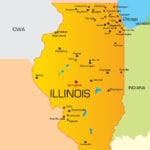
Nursing is a rewarding profession, but it requires intellectual and ethical knowledge and skills to meet challenges head-on. Registered nursing is a calling to serve communities and people across their lifespans and make a difference in the world. Nursing education programs, therefore, prepares individuals to excel in this chosen profession. The Bachelor of Science in Nursing (BSN) is a four-year program that helps students navigate the complexities of health care. If you’re like most students, choosing a degree that will … Read the rest




























